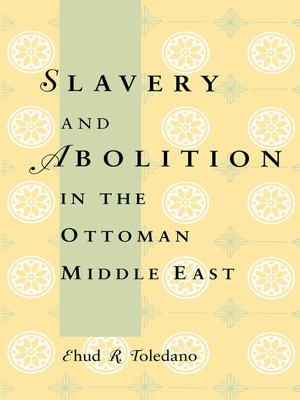
Sign up to save your library
With an OverDrive account, you can save your favorite libraries for at-a-glance information about availability. Find out more about OverDrive accounts.
Find this title in Libby, the library reading app by OverDrive.



Search for a digital library with this title
Title found at these libraries:
| Library Name | Distance |
|---|---|
| Loading... |
In the Ottoman Empire, many members of the ruling elite were legally slaves of the sultan and therefore could, technically, be ordered to surrender their labor, their property, or their lives at any moment. Nevertheless, slavery provided a means of social mobility, conferring status and political power within the military, the bureaucracy, or the domestic household and formed an essential part of patronage networks. Ehud R. Toledano's exploration of slavery from the Ottoman viewpoint is based on extensive research in British, French, and Turkish archives and offers rich, original, and important insights into Ottoman life and thought.
In an attempt to humanize the narrative and take it beyond the plane of numbers, tables and charts, Toledano examines the situations of individuals representing the principal realms of Ottoman slavery, female harem slaves, the sultan's military and civilian kuls, court and elite eunuchs, domestic slaves, Circassian agricaultural slaves, slave dealers, and slave owners. Slavery and Abolition in the Ottoman Middle East makes available new and significantly revised studies on nineteenth-century Middle Eastern slavery and suggests general approaches to the study of slavery in different cultures.







